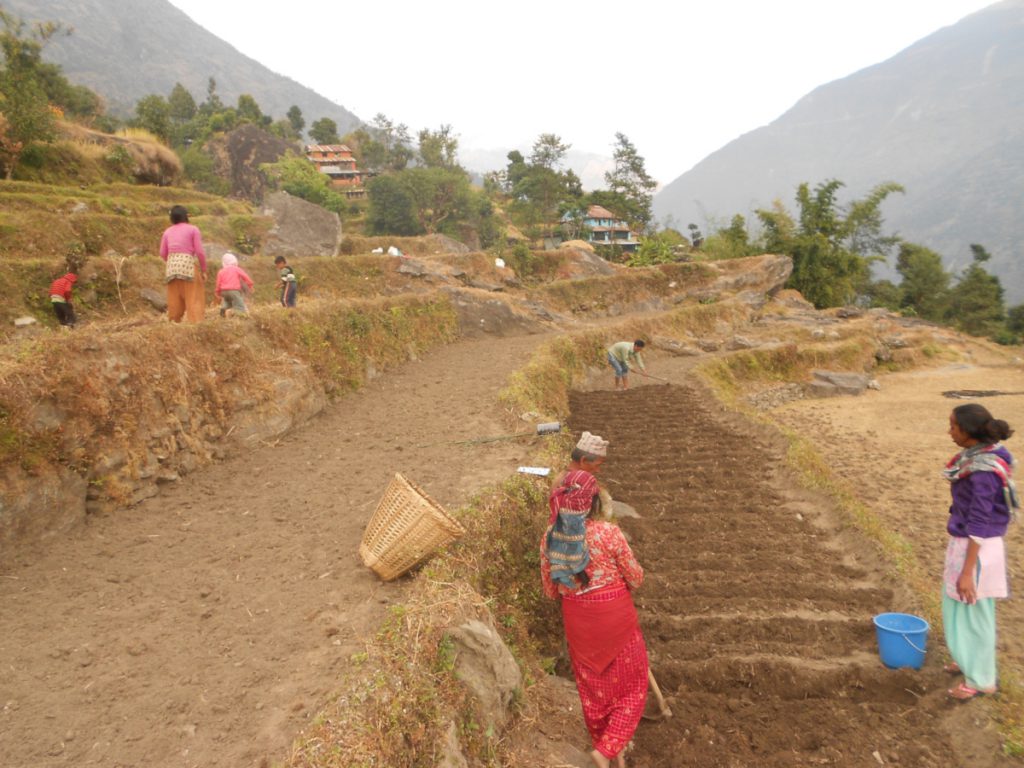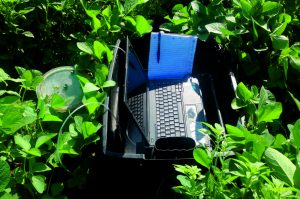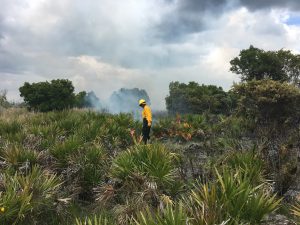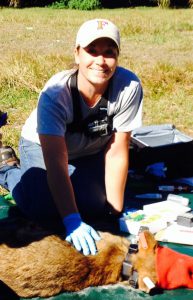By: Bethany Wight, Biologist
UF/IFAS Range Cattle Research and Education Center

Dipti Rai grew up in Lalitpur, Nepal, the third largest city located in the south-central part of the Kathmandu Valley. She came from modest beginnings, growing up with her father, a high school science teacher who installed a continuous desire in science and technology. Growing up she enjoyed reading and became interested in science, especially plant sciences at a young age.
Dipti earned her Bachelor’s degree in Agricultural Science from the Institute of Agriculture and Animal Sciences, Tribhuvan University, Nepal in 2011. It was the only agricultural college at the time and she received a 4 year scholarship to complete her degree. During her studies she learned basic agricultural sciences, including soil science and agricultural systems in Nepal.

After graduating Dipti worked as an intern in Nepal Agriculture Research Council (NARC) in Seed Business Modeling Project funded by International Rice Research Institute from 2012-2013. After that, she worked as an Agriculture Project Officer in Rasuwa for the Group of Helping Hands (SAHAS) Nepal on the project “Sustainable Agriculture through Livelihood Security (SALS)’’ from 2013-2014. Rasuwa is a remote district located in the Himalaya region of Nepal. As an AG Officer she worked with local farmers to promote environmentally sound, socially acceptable and economically viable resource and agriculture management practices. Being such a remote area, she helped local farmers by organizing workshops and trainings about sustainable farming techniques. This gave her some valuable experience in extension and outreach.
Dipti decided to strengthen her knowledge in the field of agricultural science and earned a Master’s degree in Agriculture and Environmental Sciences from Lincoln University of Missouri in 2016. Her research compared Gas Chromatography (GC) and a Photoacoustic Analyzer System (PAS) as methods to measure greenhouse gas emissions in corn and soybean fields under various land management practices in Central Missouri. She found strong correlation in the measurement of carbon dioxide emissions between the Gas Chromatography and Photoacoustic Analyzer System, however, less correlation between nitrous oxide emissions. In addition, they found that the Photoacoustic Analyzer System was easier to operate, continuously measured emissions, and was less time consuming. To learn more about her research the full peer-reviewed publication can be found here https://doi.org/10.1660/062.121.0405.

“My Master’s research project motivated me towards gaining a deeper understanding of environmentally sound land management systems and soil processes and thus I chose to pursue my PhD degree at UF.”
Dipti began her PhD in 2016 at the University of Florida and is advised by Dr. Stefan Gerber and co-advised by Dr. Maria Silveira. Her PhD research is titled “Soil biogeochemical properties and microbial communities under prescribed burning in Florida native rangelands”. Specifically her current research focuses on the impacts of prescribed burning on soil nutrient and microbial dynamics in subtropical rangelands. Working with the LTAR-USDA project, soil samples are collected from the RCREC in Ona and sent to Dipti in Gainesville where she runs analyses for microbial activity and diversity. Many studies have examined the impact of prescribed burning on vegetation and other general physical properties, but little research has examined the impact on microbes in the soil. These microbes are critical for various nutrient cycles within the soil and Dipti’s research aims to link microbial composition to nitrogen and carbon cycles in rangelands pre- and post-burn. She uses an elemental analyzer to measure nutrients and enzyme activities. To measure microbe composition and diversity she extracts DNA from soil samples and creates genetic sequences using the Illumina MiSeq Platform to identify the different microbes. With the increasing global trend of land use changes and fire occurrence, there is a substantial need to understand the role of soil microorganisms after fire for ecosystem recovery and the adoption of suitable land management practices.


Dipti is planning to graduate in the fall of 2020, so close! When she is not working on her research she enjoys traveling, hiking, and cooking. After graduation she hopes to work as a Post-doctoral researcher.
“With my educational background, I would love to stay in academia and continue my professional career as a soil scientist to maintain sustainable land management practices and soil quality. I also want to continue learning and explore more about the aspects of soil microbial communities in agricultural science and global sustainability.”
The LTAR project is funded by the USDA. To learn more about the LTAR network, visit https://ltar.ars.usda.gov/


This was written by Bethany Wight, a biological scientist at the UF/IFAS Range Cattle REC in Ona, FL. If you have questions please contact her at bwight@ufl.edu.
 0
0
